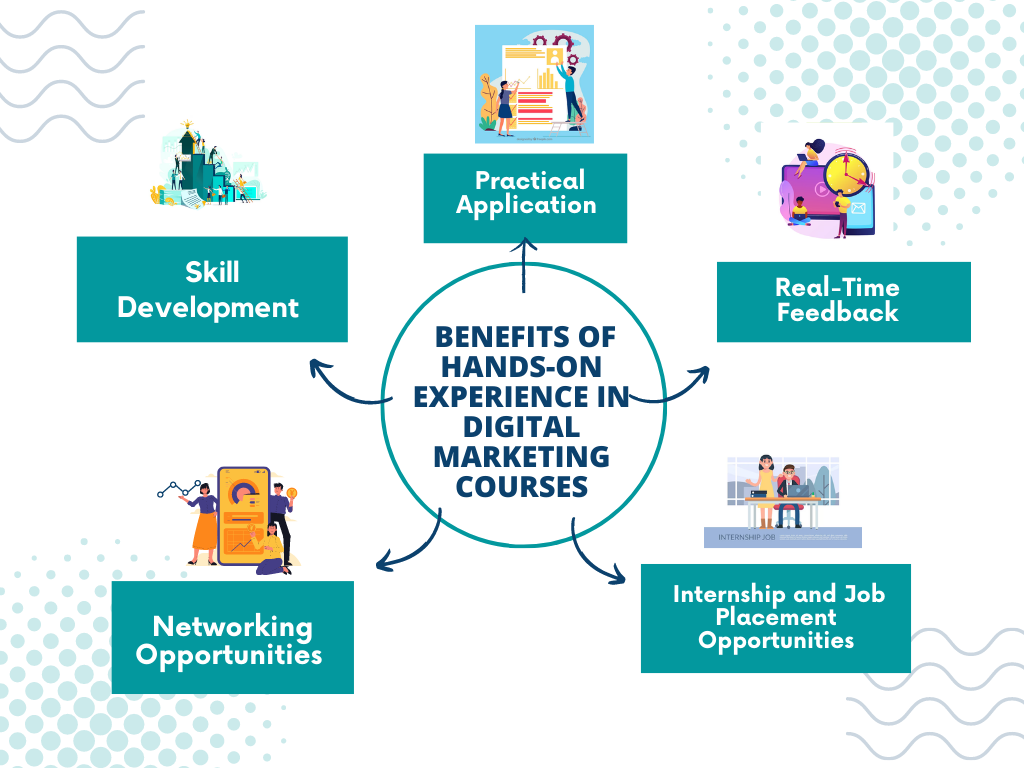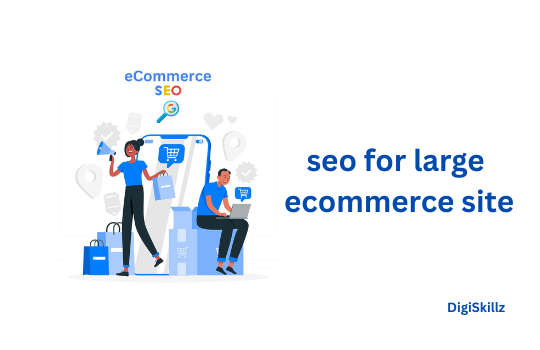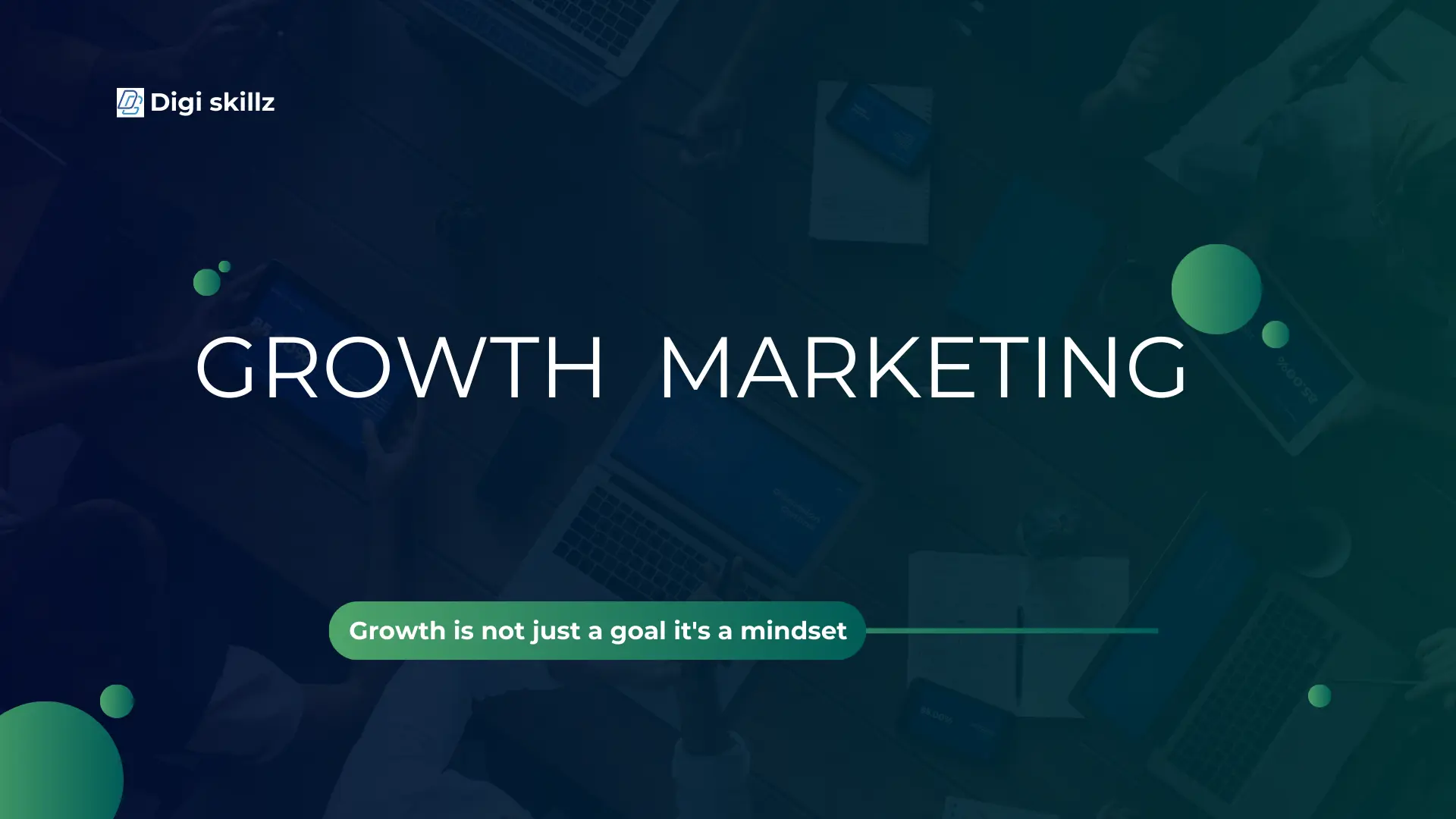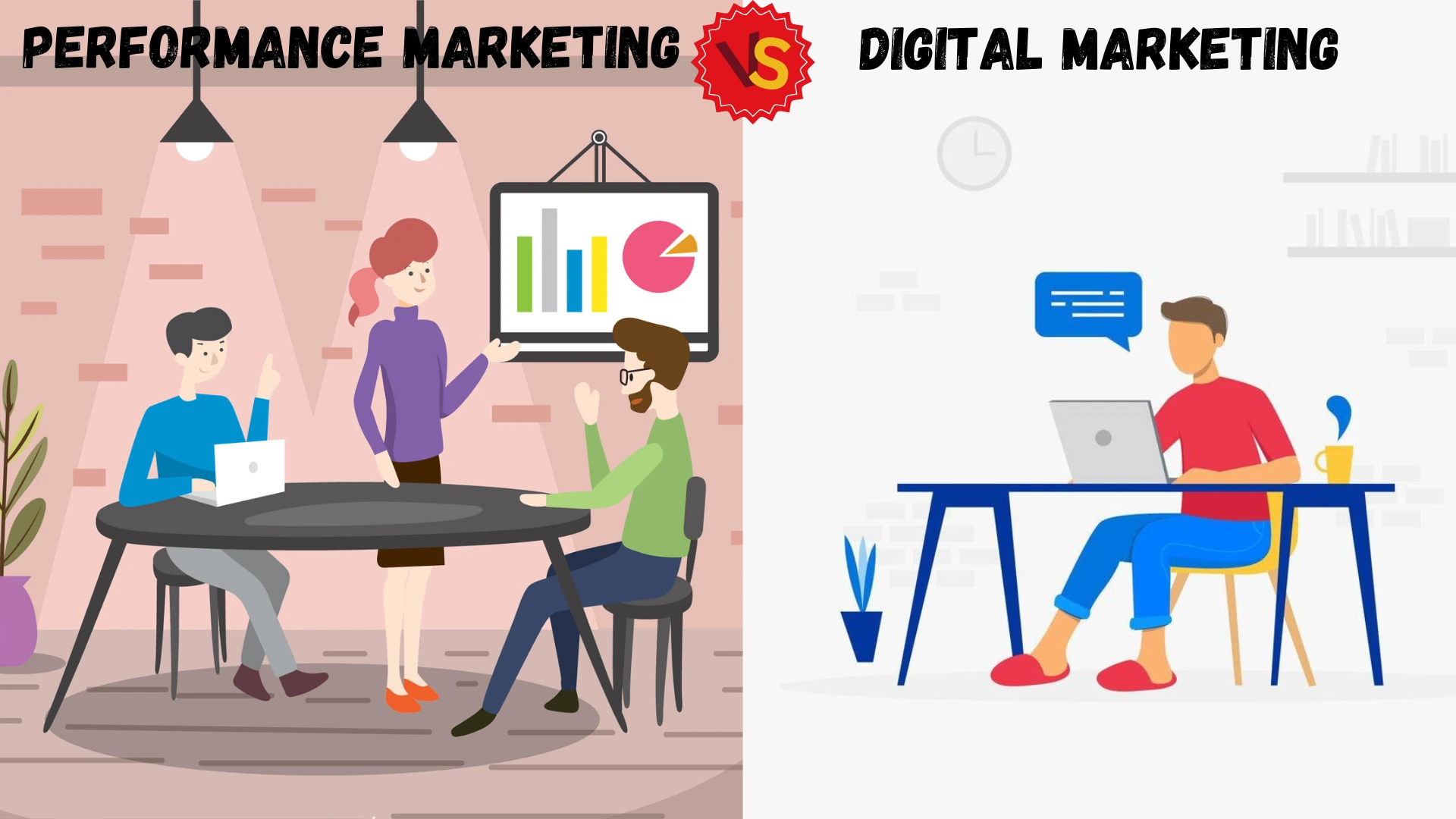Table of Contents
Digital Marketing is an industry that invites people who have a wide range of skills
Digital Marketing is an industry that invites people who have a wide range of skills. It offers a promising career choice for people entering the job market. Individuals seeking to flourish in the area of digital marketing should gain hands-on experience. One of the key advantages of hands-on experience in digital marketing is the opportunity to apply the knowledge gained through formal education or self-study.
Employers are increasingly looking for digital marketers with hands-on experience. If you have this experience, you will be more marketable to potential employers and will be able to command a higher salary. Marketing has advanced greatly in today’s digital world, with businesses becoming more dependent on digital platforms to reach their target audience.
As a result, marketing professionals must have a different range of skills, including proficiency in digital marketing. Hands-on experience in digital marketing courses is one of the most effective ways to obtain a competitive advantage and develop practical skills.
It is not just a fast-paced environment, but it is also a place to meet energetic and innovative people. The nature of the post requires a willingness and skill to drive companies forward, demanding the selection of a particularly forward-thinking individual. Experience in Digital Marketing
Here are two key benefits of hands-on experience in digital marketing

- Develop practical skills: Classroom learning can teach you the basics of digital marketing, but it is only through hands-on experience that you can develop the practical skills you need to succeed in this field. It helps you to understand the latest digital marketing trends.
- Build confidence: When you’re confident, you’re more likely to move forward with opportunities. There is nothing like the satisfaction of seeing a digital marketing campaign you created to succeed. Experience will give you the confidence to take on new challenges and pursue your career goals.
- Continuous Improvement and Feedback: Students with hands-on experience in digital marketing classes will receive real-time feedback on their work, allowing for ongoing progress and growth. They may use this feedback loop to find areas for improvement, make changes, and enhance their digital marketing efforts experience in digital marketing
As a result, hands-on experience improves adaptation in a dynamic digital marketing world. Through practical learning, individuals become familiar with various digital marketing channels, such as social media, search engine optimization (SEO), pay-per-click (PPC) advertising, and email marketing. Because of this exposure, they can quickly respond to changing market conditions, stay ahead of the competition, and execute required marketing campaigns.
Learners can build a wide range of vital skills by taking digital marketing courses that emphasise hands-on experience. Individuals can improve their analytical skills by evaluating data, finding trends, and making data-driven decisions through practical exercises. Furthermore, hands-on experience allows students to hone their problem-solving skills while navigating real-world marketing challenges and developing successful strategies.
Furthermore, hands-on experience develops creativity by challenging learners to think critically and creatively. Learners acquire confidence in experimenting with various advertising strategies, exploring new ideas, and releasing their creative potential by putting themselves in real projects experience in digital marketing
Here are some additional benefits of hands-on experience in digital marketing:
- Deeper Understanding of Tools and Platforms: Practical experience provides insight into the use of various digital marketing tools and platforms. Marketers learn how to navigate platforms like Google Ads, Facebook Ads Manager, email marketing software, and SEO tools, allowing them to utilize these resources effectively.
- Customer Relationship Management and experience in digital marketing: Interacting with customers or clients directly as part of a marketing campaign or project enhances interpersonal and communication skills. This experience is valuable for understanding customer needs and building lasting relationships.
- Content Creation Expertise: Content is a cornerstone of digital marketing. Hands-on experience helps marketers hone their content creation skills, including writing, graphic design, video production, and content strategy. This creativity is essential for engaging and connecting with the target audience.
- Multichannel Marketing Mastery: Digital marketing often involves multiple channels, such as social media, email, search, and content marketing. Hands-on experience allows marketers to integrate these channels effectively to create cohesive and results-driven marketing strategies.
- Testing and Experimentation: A critical aspect of digital marketing is A/B testing and experimentation. Through practical experience, marketers learn how to conduct experiments, analyze results, and make data-driven decisions to improve campaign performance.
- Time Management and Prioritization: Real-world experience teaches individuals how to manage time effectively and prioritize tasks. Digital marketers often juggle multiple projects and deadlines, so developing time management skills is crucial.
- Campaign Optimization: With hands-on experience, marketers become proficient at optimizing campaigns for better performance. They learn how to adjust ad budgets, target demographics, keywords, and content to maximize ROI.
- ROI Tracking: Digital marketing is about generating a return on investment. Practical experience enables individuals to track and measure ROI accurately, demonstrating the impact of marketing efforts on the bottom line.
- Crisis Management: Not all marketing campaigns go as planned. Hands-on experience helps marketers develop crisis management skills to handle negative PR, social media crises, or campaign failures effectively.
- Entrepreneurial Skills: For those looking to start their own digital marketing agency or business, hands-on experience equips them with the entrepreneurial skills needed to run a successful operation, including client management, budgeting, and scaling.
Digital marketing has become critical to business success in today’s technologically advanced environment. Practical knowledge and skills gained through hands-on learning are more vital than ever as business owners and professionals strive to stay ahead of the competition in the digital landscape.
In the dynamic field of digital marketing, hands-on experience is a valuable asset that complements formal education and theoretical knowledge. It offers numerous benefits, including skill development, problem-solving abilities, adaptability, and the opportunity to build a strong portfolio. Ultimately, experience in digital marketing not only enhances career prospects but also contributes to personal and professional growth in this ever-evolving industry. Experience in Digital Marketing

The role of user experience in SEO: How to improve your website’s usability
SEO is an important aspect of online marketing success, but it is more than just ranking high on search engine results pages (SERPs). The user experience (UX) of a website is equally important in SEO. A website that provides an excellent user experience is more likely to rank higher on search engine results pages, retain users, and turn them into customers experience in digital marketing
How user experience affects SEO :

User experience has a huge impact on SEO, and there are various variables to consider when optimizing the UX of your website. Firstly, your website’s design should be optimized for usability. Make sure all pages are well-designed, easy to use, and simple to utilize. This will improve user engagement with the content and raise the chance of users returning to your site or taking the desired actions such as making a purchase. You should also make sure that your website loads quickly. Since Google ranks sites depending on page speed, if your site takes too long to load, it may not rank as high in SERP results as others. Also, verify that all pages are indexed by search engines.
User engagement metrics are vital for SEO since they show how visitors interact with your website. Google considers user involvement when analyzing websites for ranking potential, thus it’s critical to monitor these indicators. Pageviews, bounce rates, average time on page, and click-through rates are some of the most often used metrics for assessing user engagement with your website. Tracking new vs. returning visitors, departure pages, and conversion rates can also provide useful information about how people interact with your material. By regularly tracking these indicators, you will be able to assess the efficiency of your SEO approach and discover areas for improvement. Experience in digital marketing.
In the ever-evolving landscape of digital marketing, user experience (UX) has emerged as a critical factor influencing the success of Search Engine Optimization (SEO) efforts. As search engines continuously refine their algorithms to deliver the most relevant and valuable results to users, the significance of providing a seamless and engaging experience cannot be overstated.
At its core, the user experience encompasses the overall satisfaction and delight a visitor experiences while interacting with a website or digital platform. This includes elements such as website navigation, page load times, mobile responsiveness, and the clarity of content. Google, the dominant player in the search engine realm, has increasingly prioritized user-centric metrics in its ranking algorithms, making it essential for digital marketers to focus on delivering a positive UX.
One key aspect where UX and SEO converge is page load speed.
Slow-loading websites not only frustrate users but also hinder search engine bots from crawling and indexing content efficiently. A fast and responsive website contributes not only to a better user experience but also to higher search rankings.
Mobile responsiveness is another critical component. With the majority of online searches now occurring on mobile devices, Google prioritizes mobile-friendly websites in its rankings. Digital marketers must ensure that their websites are optimized for various screen sizes, providing a seamless experience across devices.
Content is king in the digital realm, and its presentation significantly impacts user experience. Websites with clear, concise, and valuable content are more likely to retain visitors. Search engines recognize this and reward websites that offer high-quality, relevant content. Ensuring that content is easily accessible and well-structured contributes to a positive user experience, leading to improved SEO performance.
In conclusion, the intricate relationship between user experience and SEO is undeniable. Digital marketers must prioritize creating websites that not only cater to search engine algorithms but also provide a seamless and enjoyable experience for users. By focusing on aspects such as page speed, mobile responsiveness, and content quality, marketers can enhance both user satisfaction and search engine rankings, creating a win-win scenario in the competitive landscape of digital marketing.
conclusion :
Experience in digital marketing courses is critical in preparing students for success in the ever-changing area of digital marketing. The benefits of experience in digital marketing are diverse, ranging from applying theoretical knowledge to developing practical skills, stimulating creativity, and constructing a professional portfolio. Hands-on experience in digital marketing offers a wide range of benefits that extend beyond theoretical knowledge. It equips individuals with practical skills, adaptability, and the ability to drive real results, making it an invaluable asset in the competitive digital marketing landscape.











Leave A Comment